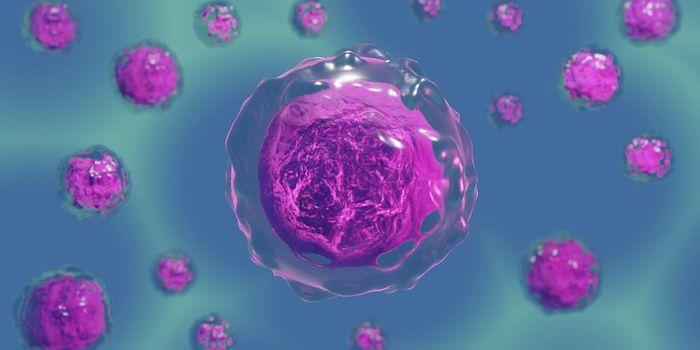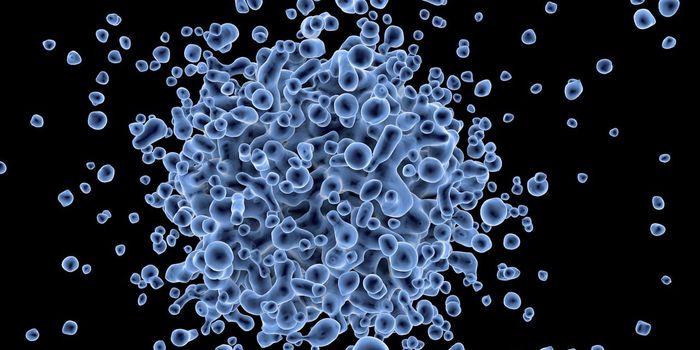New insights on pancreatic ductal adenocarcinoma
New research published this week in Cell from scientists at NYU Grossman School of Medicine, the Department of Radiation Oncology at NYU Langone Health, and Perlmutter Cancer Center details the mechanism by which pancreatic cancer cells avoid starvation. The study looks specifically at the relationship between pancreatic ductal adenocarcinoma cancer tumors and dense tissue growth.
Pancreatic ductal adenocarcinoma, known by its acronym PDAC, has a five-year survival rate of less than 10%, making it the most fatal pancreatic cancer. Approximately 47,050 people will die of pancreatic cancer in 2020, according to the American Cancer Society.
The NYU scientists conducted experiments in cancer cells, mice, and human tissue samples. They determined that when pancreatic cancer cells are starving, they release a protein known as nerve growth factor which triggers nerve cell axons to secrete serine into tumors, providing energy to the cancer cells so they can continue replicating. Serine is an amino acid that acts as a building block for protein growth.
"Our study offers more proof that pancreatic cancers are remarkable metabolic scavengers, which contributes to their deadliness," says corresponding author Alec Kimmelman, MD, PhD, the Chair of the Department of Radiation Oncology at NYU Langone. "The ability of nerves to funnel nutrients from the bloodstream to the more austere pancreatic tumor microenvironment is a fascinating adaptation, and could lead to therapeutic approaches that interfere with this unique flexibility."

This mechanism by which pancreatic cancer cells manipulate nerve cells to rescue them from starvation has been shown in previous investigations. However, this is the first study to show that nerve cell axons, the extensions of nerve cells, also assist cancer cells and tumors metabolically.
Future studies will contemplate the potential of introducing serine-free diets in order to target nerve cell axons and the nutrients that they provide for pancreatic cancer cells. The team has already begun such experiments, showing that mice that received serine-free diets had a 50% slower tumor growth of PDAC tumors. Combining this nutritional therapy with a drug known as LOXO-101 that inhibits the ability of neurons to extend their axons into tumors showed an additional slowing of tumor growth by another 50%.
"As TRK inhibitors are approved in the treatment of some cancers, they might have value in combination with a low serine diet following surgery in the perhaps 40 percent of patients with PDAC tumors that can't make serine," said lead study author Robert Banh. "Whether this approach could decrease tumor recurrence by limiting the nutrient supply would need to be confirmed in clinical trials."
Sources: Cell, Eureka Alert








